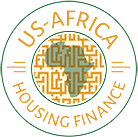When social media feeds must be parsed for facts and lies, and when the regulatory requirements for brokers to honestly represent the financial interests of their clients are being rolled back, we must ask: Who can you trust, and how does your answer impact business decisions? On a recent business trip through the West African countries of Guinea, Cote d'Ivoire and Liberia, a common theme emerged: how the absence of trust in the residential real estate development sector there has hindered foreign investment and impeded economic growth.
I operate in a niche market -- my company sells homes in West Africa primarily to West Africans living in Organisation for Economic Co-operation and Development (OECD) countries -- but the impact of trust on business success and country-level economic growth holds broadly. A 2017 study of 23 industries across 43 countries, incorporating over 10,000 observations from 1990 to 2008, showed that country-level social trust is positively related to innovation and that this relationship is not trivial: A 15% increase in a country's social trust is accompanied by a greater than 50% increase in innovation measures. The interplay between trust and development is self-reinforcing. A 2015 study found that disparities in levels of trust and economic development among countries may lock some countries in a low-trust, low-development trap -- while others that enjoy high trust and a high base level of economic development may be more resilient and thus able to retain higher levels of both trust and development on a permanent basis.
The trust theme plays out in real estate in West Africa via both interpersonal trust and trust in government institutions. For West Africans in the diaspora wishing to build a home in their native country, historically, the first step has been to buy land. To minimize travel cost and maximize land investment, many buyers would choose a “trusted” friend or relative to locate available land and send that person the funds for the purchase. Thus would begin a multi-year process of periodic funds transfers and periodic updates from the field, as the land was acquired, a wall built around it, a concrete slab foundation poured, concrete block walls raised, a roof installed and so on to project completion. But, project completion rarely arrives. The process often breaks down at the initial stage of land acquisition due to poor government enforcement of land title claims and lack of criminal charges against fraudulent sellers. A buyer based in the U.S. might travel to West Africa to view their property, only to learn that their parcel of land was also sold to multiple other parties. Living thousands of miles away, diaspora buyers are at a disadvantage in pursuing a claim to the land in local courts and usually are forced to take a complete loss.
---
